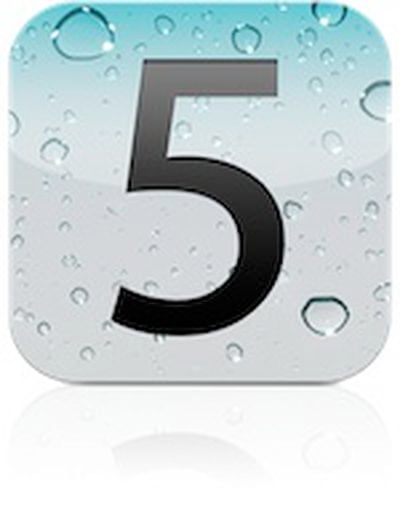Apple Phasing Out Developer Access to UDIDs in iOS 5
 TechCrunch reports that Apple is making an interesting change in iOS 5, phasing out the ability for developers to access a device's Unique Device Identifier (UDID). Apple is instead asking developers to create unique identifiers specific to their apps in order to tie installations to specific users.
TechCrunch reports that Apple is making an interesting change in iOS 5, phasing out the ability for developers to access a device's Unique Device Identifier (UDID). Apple is instead asking developers to create unique identifiers specific to their apps in order to tie installations to specific users.
This is a big deal, especially for any mobile ad networks, game networks or any app which relies on the UDID to identify users. Many apps and mobile ad networks, for instance, uses the UDID or a hashed version to keep track of who their users are and what actions they have taken. App publishers are now supposed to crete their own unique identifiers to keep track of users going forward, which means they may have to throw all of their historical user data out the window and start from scratch.
Apple and a number of app developers have been sued over their handling of UDIDs. While UDIDs can't directly be linked with a specific users, information tied to a device can be passed along to advertisers to help them in targeting their advertisements, with some privacy advocates objecting to the practice.
With the UDID, ad networks can track what apps are being used on a given device, enabling them to piece together a valuable picture of activity conducted on a specific device. Apple's move seems to specifically address that concern, breaking down identifiers to the app level to limit the ability to put together such a complete picture.
Popular Stories
Apple's next-generation iPhone 17 Pro and iPhone 17 Pro Max are just over two months away, and there are plenty of rumors about the devices.
Below, we recap key changes rumored for the iPhone 17 Pro models.
Latest Rumors
These rumors surfaced in June and July:Apple logo repositioned: Apple's logo may have a lower position on the back of the iPhone 17 Pro models, compared to previous...
Apple should unveil the iPhone 17 series in September, and there might be one bigger difference between the Pro and Pro Max models this year.
As always, the Pro Max model will be larger than the Pro model:iPhone 17 Pro: 6.3-inch display
iPhone 17 Pro Max: 6.9-inch displayGiven the Pro Max is physically larger than the Pro, it has more internal space, allowing for a larger battery and...
In 2020, Apple added a digital car key feature to its Wallet app, allowing users to lock, unlock, and start a compatible vehicle with an iPhone or Apple Watch. The feature is currently offered by select automakers, including Audi, BMW, Hyundai, Kia, Genesis, Mercedes-Benz, Volvo, and a handful of others, and it is set to expand further.
Apple has a web page with a list of vehicle models that ...
The calendar has turned to July, meaning that 2025 is now more than half over. And while the summer months are often quiet for Apple, the company still has more than a dozen products coming later this year, according to rumors.
Below, we have outlined at least 15 new Apple products that are expected to launch later this year, along with key rumored features for each.
iPhone 17 Series
iPho...
Apple is continuing to refine and update iOS 26, and beta three features smaller changes than we saw in beta 2, plus further tweaks to the Liquid Glass design. Apple is gearing up for the next phase of beta testing, and the company has promised that a public beta is set to come out in July.
Transparency
In some apps like Apple Music, Podcasts, and the App Store, Apple has toned down the...
New renders today provide the best look yet relocated Apple logo and redesigned MagSafe magnet array of the iPhone 17 Pro and iPhone 17 Pro Max.
Image via Majin Bu.
Several of the design changes coming to the iPhone 17 Pro model have been rumored for some time, such as the elongated camera bump that spans the full width of the device, with the LiDAR Scanner and flash moving to the right side.
...
Amazon is soon to be back with its annual summertime Prime Day event, lasting for four days from July 8-11, the longest Prime Day yet. As it does every year, Prime Day offers shoppers a huge selection of deals across Amazon's storefront, and there are already many deals you can get on sale ahead of the event.
Note: MacRumors is an affiliate partner with Amazon. When you click a link and make a ...
Since the iPhone X in 2017, all of Apple's highest-end iPhone models have featured either stainless steel or titanium frames, but it has now been rumored that this design decision will be coming to an end with the iPhone 17 Pro models later this year.
In a post on Chinese social media platform Weibo today, the account Instant Digital said that the iPhone 17 Pro models will have an aluminum...
Apple's position as the dominant force in the global true wireless stereo (TWS) earbud market is expected to continue through 2025, according to Counterpoint Research.
The forecast outlines a 3% year-over-year increase in global TWS unit shipments for 2025, signaling a transition from rapid growth to a more mature phase for the category. While Apple is set to remain the leading brand by...
![]() TechCrunch reports that Apple is making an interesting change in iOS 5, phasing out the ability for developers to access a device's Unique Device Identifier (UDID). Apple is instead asking developers to create unique identifiers specific to their apps in order to tie installations to specific users.
TechCrunch reports that Apple is making an interesting change in iOS 5, phasing out the ability for developers to access a device's Unique Device Identifier (UDID). Apple is instead asking developers to create unique identifiers specific to their apps in order to tie installations to specific users.




















